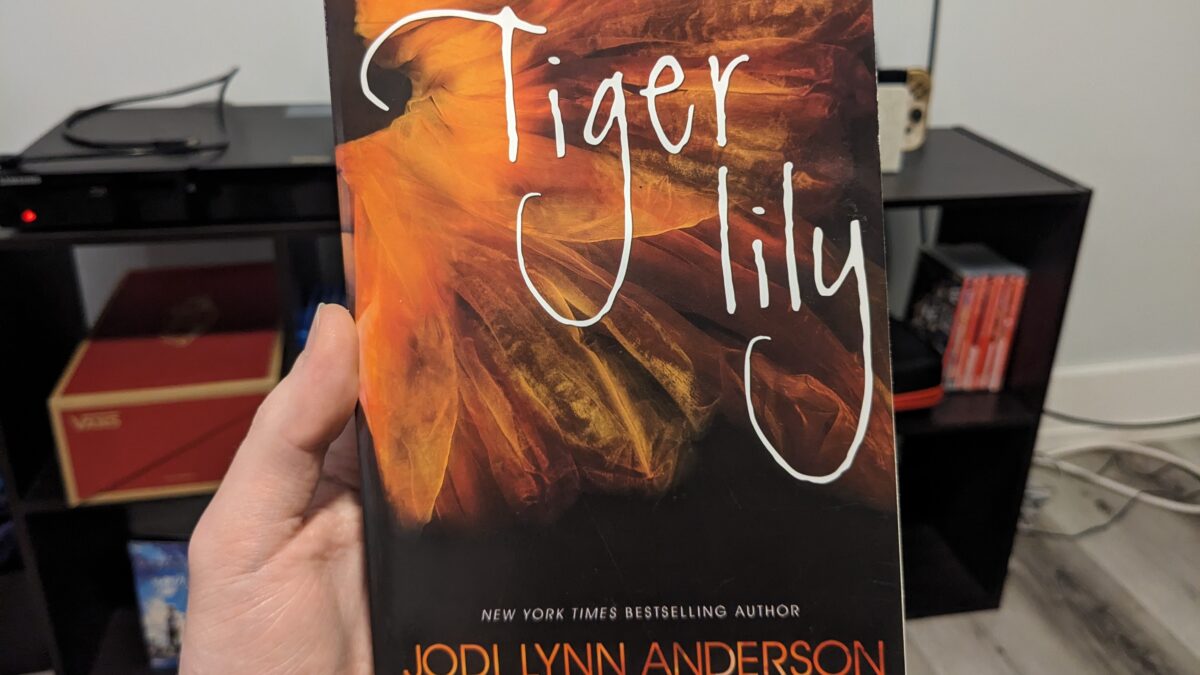I wrote this essay for a nonfiction class I took during the last semester of my undergrad. I realized I never posted it here—so here it is for your reading enjoyment! Featuring backstory deep cuts like Amy’s tarantula and the life-altering consequences of sucking at basketball as an elementary schooler in Utah.
“…of making many books there is no end…” (Ecclesiastes 12:12)
I suspect that you like books. After all, you could be, at this very moment, instead of reading this sentence, completing any one of a number of worthwhile tasks, such as making dinner, folding laundry, studying for a test, conducting a high-speed freight train, gossiping about Lisa’s new boyfriend, taking down the final boss in Elden Ring, breaking the world record for speed stacking plastic cups, watching Bob Ross paint a landscape, or using the bathroom.
If any of those gerund phrases made you want to get up and accomplish something that has nothing to do with paper and glue, then by all means, put this book down. (I’m not going anywhere.) The rest of us, unfortunately, must reckon with the fact that we have a strange, perhaps pathological, fascination with the written word. Thanks to books, I have smiled, cried, shouted, muttered insults, and deployed my emotions in every other conceivable way while alone in my bedroom with nothing for company but a five inch by eight inch block of processed wood pulp. And—this is the part where I’m assuming you’re in my camp here—who wouldn’t?
The way I see it, books are captivating because they’re like people. I don’t mean that they’re a substitute for social interaction (though I have nothing to say in defense of when I skipped a middle school dance to read The Silmarillion in the library, because, okay, Túrin Turambar had a lot more interesting stuff going on in his life than I did). I mean they’ve got personality. Some person, somewhere, maybe last week, maybe two thousand years ago, had so much to say that they couldn’t just tell their mom or their boss, so they wrote it down, or at least had a scribe do it, and now, two thousand years later, they’re still talking, and it’s only a question of whether I’ve got a free afternoon to listen.
Books are just as varied and diverse as the people who write them. There’s thick books, thin books, nonfiction books about mammoths and simple machines, fiction books about heroes who save the world and get the girl or heroines who save the world and get the guy, pristine books, mushy rained-on books, multi-volume reference books, Scholastic book fair books, vaguely meaningful books about kids who get older because their dogs and moms die. Books about cats where “who peed where” is a vital plot point. Books that you finished in three hours before passing out on your Thomas the Tank Engine pillow, books that you took to the doctor’s office so you didn’t have to look at the nurse when she stabbed you and then gave you a Mickey Mouse band-aid. Paperback books that you felt guilty about giving the first thin white crease along the spine, paperback books with the spine already chalk-white and peeling, hardback books that didn’t have that problem but were wrapped in gradually tattering plastic like hangnails.
It’s not just that the books themselves are varied. So are their experiences and conditions. Have you ever thought about everything that can happen to a book? It doesn’t matter if it’s a codex, scroll, accordion fold, paperback, saddle stitch, Nag Hammadi style, whatever. Somehow the earliest bookmakers decided to store human knowledge on the world’s most susceptible material—paper—and it has come down to the elementary schoolers of this modern age with only marginal adjustments. If books were Pokémon, they would be weak to everything. Water? One glass of it and the whole thing is now wrinklier than the witch in Howl’s Moving Castle. Fire? Look up “best materials for tinder.” Or “Library of Alexandria.” Ground? Ask your closest school librarian what percentage of her books have kissed asphalt in their lifetime. Fighting? Well, now we’re talking; all I’m saying is that if I had to battle another nine-year-old with some classroom object, a dictionary isn’t a bad bet. But it’s gotta be something heavier than those malnourished “Student’s Dictionaries” that were cool because they had “antidisestablishmentarianism” in the back. I’m talking jumbo atlas size, World Book, the old-looking one in the library that sat on its own lectern.
The first job I applied for in college was a position at the university library. The job turned out to involve the cataloging and, occasionally, investigation of book damage. Pencil marks were forgivable, but more serious crimes like disintegrating spines, warped corners, and the worst offense, water damage, were handled with a politely passive-aggressive copy-pasted email stating the name of the book and the nature of the damage and inviting the offender to fess up.
This was a lesson in human nature. Most of our emails never garnered a response, and unless the book was mutilated beyond legibility, we simply entered the damage in our database and extended clemency to the suspect. Case closed. A saintly few would compose multi-paragraph responses explaining that they did not cause the damage and were in fact appalled that anyone could commit such a heinous transgression. This group got off with only the minor punishment of having their email circulated to a number of employees in our department proportionate to its humor value. By far the smallest group were those who admitted to the damage, sometimes tersely (usually professors fell into this group), other times with a tragic tale of how that damage had come about. These guilty few were handed over to our squad of accountants and I rarely heard from them again.
I can’t say I’ve ever intentionally damaged a book in my life, besides pencil and highlighter marks and the occasional milk and spaghetti sauce spots that are the unavoidable collateral detritus of a literary life well lived. That said, there are books that I would have greatly liked to have destroyed. The library of Morgan County, Utah, where I’m from, had a restricted section (at least, I assumed that was what the cart of dubious books in the back room was for) that inexplicably contained a single copy of Mein Kampf which would have made admirable toilet paper. And then there was the book recommended to my high school government class by the teacher, who could generously be described as a libertarian and less generously described as someone who gave us daily quizzes on John Birch Society articles about defending the Constitution, abolishing the 17th amendment, and protecting our children from the Deep State. I wish I still remembered the title of that book, mostly because I’m afraid I ended up on some government watch list for all the terms I googled in my attempt to find it. The thesis of that book was that immigrants are threatening our country by diluting its white values, and we should all be terrified that in the next couple decades America will be more Black and Hispanic than white. The preferred fates I’d imagine for that book, if I ever got my hands on a physical copy, are ingestion by industrial vacuum cleaner, incineration via deodorant-can-and-lighter flamethrower, and one-way trebuchet-assisted flight into the Great Salt Lake, in that order.
Every book was a person at some point down the pipeline, and it might be because of that that we judge books the same way we judge people. If you ask someone their favorite book, they’re likely to say something like, “How dare you ask that! That’s like making me pick a favorite child!” And yet everyone does judge books, often by their covers, and yes, everyone has their favorites.
One of my favorites, and one that I went to great lengths to avoid judgment on behalf of, was a stand-alone young adult romance called Tiger Lily by Jodi Lynn Anderson. The particular copy, I remember, was hardback, mostly black, the plastic around the cover peeling only barely, checked out a small handful of times. I first encountered it at work, while returning other books to the YA shelves, and I guess I just kept coming back to it. I would look at it and then put it back, and read the cover and then put it back, and read the first page and then put it back. Finally I concealed it under another book and checked it out onto my own account, which was against employee policy, but what else was I supposed to do: let the librarian see that I, a boy, wanted to read a romance?
I suspect that I would not have allowed myself a fascination with a romance book in the first place, had I been more protective of my masculine image. Books, after all, have gender, just like people do. (The Longest Raid of the Civil War is from Mars, Anna and the French Kiss is from Venus.) But my masculine image was already in critical condition by the time I was reading novels, thanks to my ineptitude at basketball. The girls’ sport of jump rope, on the other hand, was primal in its simplicity. There was no arcane rulebook, only “Down in the Valley” and a handful of other jump rope folk tunes and sometimes double-dutch which wasn’t any harder than single-dutch. So my earliest allies became Amy with the glasses who brought her tarantula to school for show-and-tell and Carissa who shook the hair out of her face to sing a song she’d written on her ukulele and Bates who did ballet and Katharine who ate paper and Rylee who once said she thought that Mormons worship idols. We all sucked at basketball but most of us could get up to fifty at jump rope, and that was that.
In elementary school, my friendship with girls extended to recess and liking the flowers at my grandpa’s house, but never fashion, nor books, nor the color pink. I would not have been caught dead reading Dork Diaries or using lip gloss. That changed when, for the first time, I started paying attention to a girl for reasons other than wanting to play with her at recess. Eventually I stopped wearing gray sweatpants and gray sweatshirts to school every day and asked Mom how to do my hair and pretty soon I’d been kissed for the first time. And for the sake of being a good boyfriend I watched High School Musical, and I got a sparkly pink butterfly notebook too, which was not for my girlfriend but for me. I guess if romance wasn’t so bad, then the color pink couldn’t be so bad either. And somehow all of that led to smuggling Tiger Lily home in the deepest recess of my backpack between calculus and Mary Shelley.
This was a caper that required great discretion. Already I had incurred great shame by, when my mom entered my bedroom one afternoon to find me reading a fantasy novel on the floor, showing her the book. She got only partway through the blurb on the dust jacket before asking, “Who’s Felurian?” My face turned the color of a brand new Merriam-Webster because she was reading the sentence where the protagonist brags about having “spent the night with Felurian.” I answered, “I don’t know, I haven’t gotten to that part yet.” Which was true, there had been no sexiness to speak of thus far, but anyway my mom pursed her lips and said, “Hm.” This was the Hm by which she indicated smelling the odor of what she called “naughtiness,” the sound that said I’m not going to judge you out loud, but you know exactly what I think, i.e., Hm.
So anyway, I wasn’t about to risk this happening again, and I obediently hid the hardcover Tiger Lily until I got home and transferred it to the bottom drawer of the bathroom cabinet with chipped paint that Mom said looked old on purpose because it was “distressed.” Never mind that the book was about a romance between Tiger Lily and Peter Pan, who has to be the fictional character least likely to drop his pants. I was in no mood to get interrogated about the possibility of that happening in the book, remote as it was.
And what then? I read it in my room at night, or sometimes just locked myself in the bathroom and read it there. I had never read anything like it. There was beautiful language and there was the somehow thrilling fact that I was giving myself permission to do something that only girls do. And there was the ending, one of those unrelentingly tragic endings that makes you feel like Caesar in the Senate on a bad day because (a) how dare he just leave like that and (b) how dare he send her a letter saying he still thinks of her and (c) how dare he throw away everything they had, like the time they watched the horses together and everything was just going to be all right.
I loved it. So naturally I returned it in the exterior library slot and never talked about it again to anyone. I was, after all, still a boy, and boys don’t read those kinds of books.
And that’s the thing about books. They embarrass us, they make us angry, they take us places, both real and imagined. They teach us, even when we don’t want to be taught. About other people, but mostly about ourselves. Who we like to hang out with. What lengths we will go to avoid being thought of in a certain way. Who we should listen to, and who we should not. How we protect ourselves and make ourselves vulnerable. Books give us away, even the very oldest of us, like that old Babylonian merchant who sold bad copper whose name ended up on some tablet and then some history book and now this book. Books lie, intentionally and often. But mostly they tell the truth about us.
Now excuse me while I finish writing this so I can get to the stack of unfinished and unstarted books on my bedroom bookshelf. ∎



